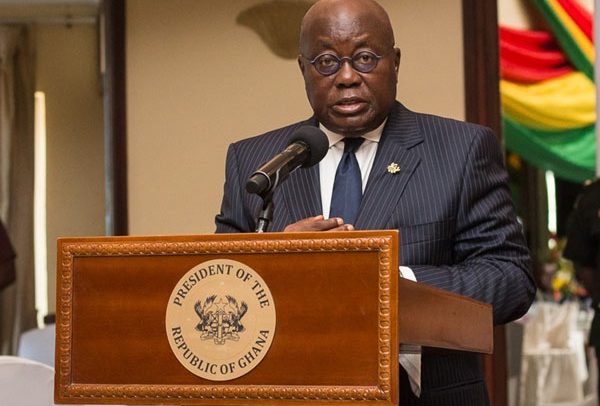President Akufo-Addo
PRESIDENT Akufo-Addo says democracy has been good for Ghanaians since the coming into effect of the 1992 Constitution, which was promulgated with immense, popular backing on January 7, 1993.
According to him, Ghanaians have since experienced the longest, uninterrupted period of stable, constitutional governance in the country’s history, banishing the spectre of instability that had “disfigured much of our nation’s early existence,” pointing out that the benefits are showing.
“We have over the last 30 years, witnessed sustained growth in every facet of national life. There have been considerable improvements in the Human Development Index – simply put: democracy has been good for us,” the President emphasised.
Addressing the nation yesterday on “the 30th anniversary of the referendum approving the 1992 Constitution”, President Akufo-Addo said, “Today, democracy, equality of opportunity and respect for human rights and the rule of law, ideals which have stood the test of time in most of the world, have now found firm anchor in our body politic.”
He noted that Ghana has had five Presidents in the history of the 4th Republic, with peaceful transfers of power from a governing to an opposition party on three separate occasions.
“Even when there was disagreement with the outcome of an election, it was the Supreme Court, on two occasions, rather than the streets, that validated the result. We are, arguably, the most stable democracy in West Africa,” he submitted.
He urged all Ghanaians to renew trust in Ghana’s democracy, and bear in mind at all times the “oft-cited statement” that “the price of liberty is eternal vigilance.”
The President explained that there are some people, who for their own parochial and selfish interests, would want to see a return to the dark days of authoritarian rule, “simply because, with no respect for the Ghanaian people, they are either unwilling to subject themselves or their vision to the open scrutiny of the Ghanaian people, or, because they know they will be rejected by the Ghanaian people and thus, seek a shortcut to office and power.”
“Let us strengthen our resolve to resist such persons for our own common good,” he rallied Ghanaians, and indicating however, that despite all the gains made in the 4th Republic, Ghanaians must acknowledge that the country has not reached the potential it should have.
“The biggest challenge we face continues to be eradicating poverty. We still have challenges in the performance of our public services; we face threats, traditional and contemporary, to our nation’s security and social stability, in the form of chieftaincy conflicts, land disputes, ethnic conflicts, cyber security issues, youth unemployment, economic hardships, and corruption in our public life,” he noted.
President Akufo-Addo said the nation has in recent times been witnessing significant difficulties in the management of the national economy, largely as a result of the impact of the COVID-19 pandemic on the global economy, which has been exacerbated by the effects of the Russian invasion of Ukraine.
He noted that the basic commitment to resolving these challenges within the framework of due process and democratic institutions must remain unshaken, intimating that he is confident that, “God-willing, we will overcome these challenges.”
Decentralisation
According to the President, one primary goal of the constitution is to decentralise the structure of governance in Ghana so that the government would be brought closer to the people.
“One fundamental barrier to the realisation of this goal has to do with the ramifications of Article 55(3) of the Constitution, which currently bars political parties from involvement in district assembly elections and local government,” he noted.
He continued, “The attempt I made in 2019 to repeal this provision and allow for the participation of political parties in local government was aborted because of the lack of a broad national consensus, when the opposition NDC signaled its inability to back the repeal.”
President Akufo-Addo said it was and “continues to be my view that the repeal or modification of an entrenched clause of the constitution should attract widespread support to make it acceptable and healthy for the body politic.”
“We should further bear in mind the strong attachment of the Ghanaian people to multi-party democratic elections. On the average, the turnout for national elections in the 4th Republic has been 72%, one of the highest in the world, whilst the turn out for the allegedly non-partisan local government elections has always hovered around 30%,” he disclosed.
BY Ernest Kofi Adu


